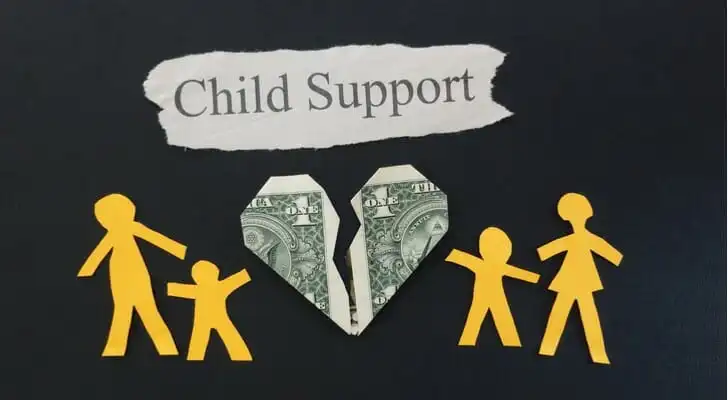The issue of child support is one of the most contentious issues that couples face during a divorce. Child support is usually paid by the non-custodial parent to the custodial parent to cover expenses associated with the child or children involved, including food, clothing, school fees and more. The traditional arrangement is changing and there can be several variations of child support arrangements, which are usually court-ordered. Parents might be able to agree to no child support but it depends on several factors, including the state in which you live. An agreement specifying no child support may not be in the best interests of the child. It may be best to consult with a financial advisor to determine if a no-child-support agreement is advisable considering your financial situation and the laws of your state.
The Basics of Child Support
Child support is paid to support the needs of a child or children in case of the divorce of the parents. The laws governing child support are different from state to state. Traditionally, the non-custodial parent pays child support, based on a formula, to the custodial parent. This arrangement is changing in some states due to issues like joint custody.
The purpose of child support is to make sure the needs of the child are covered after divorce, but it is also important to spread the child’s expenses equitably between parents. For example, if one parent has worked to support the family and the other parent has stayed home with the child or children, then the custodial parent will need a lot of financial help in the form of child support. Some judges may require that the custodial parent goes to work.
The same is true if the child or children are on some form of welfare or public assistance. If one parent has been staying home then that parent may be required to find employment to try to get the child off welfare. According to the U.S. Census, the custodial parent in the U.S. only gets around 44 percent of the support they should get for a child or children.
If the parents can’t work out a satisfactory child-support agreement, the judge will do it for them. It may require finding work, changing jobs or going back to school to receive training for a job. Unfortunately, in poverty-stricken areas especially, a mother may be left with children and she may never receive child support, which automatically puts her on public assistance or welfare rolls. The cost of daycare may exceed the wages the mother could earn depending on her education and training.
Can You Agree to a No-Child-Support Agreement?

Child support is designed to meet the expenses of a child or children and in most jurisdictions, it is not optional. In those cases, a no-child-support agreement between parents is not possible. There are other jurisdictions in which no child support agreements are possible. Are they best for the child and the parents?
Child support laws have changed due to the changes that have occurred in American families. There are circumstances where the two parents get along well and there is no animosity between them. In that situation, a no-child-support agreement may work if the two parents prefer to work out the financial arrangements for the child between them. The child may benefit from this type of arrangement.
Issues With No-Child-Support Agreements
Judges, however, don’t typically like no no-child support agreements. There are circumstances where the custodial parent does not want the non-custodial parent to have any contact with the child due to problems with addiction, abuse and other problems. In these cases, the custodial parent may not want child support so there are no ties between the child or children and the non-custodial parent. The judge may overrule the custodial parent and rule in favor of child support but without visitation as long as the problems exist.
There are several issues regarding no-child-support agreements:
- In most jurisdictions, child-support agreements are not optional.
- There may be situations where the custodial parent does not need the money from the non-custodial parent. A waiver may be granted, but the finances of the non-custodial parent’s finances will be monitored.
- In some states, child support is mandatory if the parents are not married.
- There are six states in which the mother can unilaterally cancel child support payments. Those states are Arizona, Arkansas, Colorado, Illinois, New Hampshire and Oregon.
- In some states, child support can only be terminated with the consent of both parents.
After all these considerations, parents can sign a legal document waiving child support. All stipulations must be stated within this document including why child support is being waived. The document must be signed by a notary public. Serious consideration must be undertaken as there are many implications for both the child or children and the parents. Check your state’s laws as laws vary on this issue from state to state. Child support is not taxable income to the custodial parent.
The Bottom Line

Child support is a complicated and often contentious issue during a divorce. It is possible to get a waiver of child support under certain circumstances. The non-custodial parent may not be financially well-off, but the custodial parent may have more than enough financial resources to care for the child. There may be abuse or addiction issues that make it preferable that the non-custodial parent have no contact with the child. Also, these laws and conditions change from state to state.
Tips on Divorce Issues
- Divorce and child support issues are often complicated and you may need professional help in sorting them out. If you are interested in a no-child-support arrangement, you may want to hire a financial advisor. Finding the right financial advisor doesn’t have to be hard. SmartAsset’s free tool matches you with up to three financial advisors who serve your area, and you can interview your advisor matches at no cost to decide which one is right for you. If you’re ready to find an advisor who can help you achieve your financial goals, get started now.
- When you hire a financial advisor, they must be a fiduciary. Find out the details about hiring a fiduciary and why you need one.
Photo credit: ©iStock.com/zimmytws, ©iStock.com/T Turovska, ©iStock.com/zimmytws
